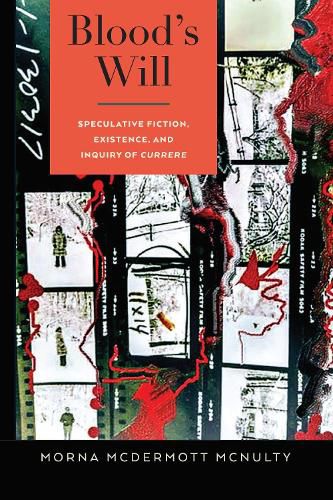Readings Newsletter
Become a Readings Member to make your shopping experience even easier.
Sign in or sign up for free!
You’re not far away from qualifying for FREE standard shipping within Australia
You’ve qualified for FREE standard shipping within Australia
The cart is loading…






This title is printed to order. This book may have been self-published. If so, we cannot guarantee the quality of the content. In the main most books will have gone through the editing process however some may not. We therefore suggest that you be aware of this before ordering this book. If in doubt check either the author or publisher’s details as we are unable to accept any returns unless they are faulty. Please contact us if you have any questions.
In Blood’s Will: Speculative Fiction, Existence, and Inquiry of Currere, main character Campbell Cote Phillips-a successful university professor, mother, and wife-faces the question what would she give up to have everything else? Her comfortable life takes an unexpected turn when she discovers that not everything is always as it appears to be. The story unfolds between the 1970s and contemporary Baltimore, weaving together the experiences of Finn (an unusual vampire with a strange history) and Campbell-along with a cast of characters across different generations-whose stories are portrayed in base-relief against the promise, or peril, of immortality. Blood’s Will is about love and desire, but it is also about family, friends, and the choices we all make. To be human is to sacrifice. To be vampire is to have endless opportunities.
As Noel Gough writes, Understanding curriculum work as a storytelling practice has been a key theme in the reconceptualisation of curriculum studies during the last three decades, encapsulated by Madeleine Grumet’s formulation of curriculum as ‘the collective story we tell our children about our past, our present, and our future.’ Situated as a story embedded in the four stages of currere, the journey of the book’s main characters exemplifies the journey of recursion: the regressive, the progressive, the analytical, and the synthetic. Blood’s Will is an example of speculative fiction that can contribute to an aspect of effective deliberation that Schwab called ‘the anticipatory generation of alternatives’ (Gough). This book is a useful reading for courses examining roles of narrative, fiction, and currere as fields of inquiry.
$9.00 standard shipping within Australia
FREE standard shipping within Australia for orders over $100.00
Express & International shipping calculated at checkout
This title is printed to order. This book may have been self-published. If so, we cannot guarantee the quality of the content. In the main most books will have gone through the editing process however some may not. We therefore suggest that you be aware of this before ordering this book. If in doubt check either the author or publisher’s details as we are unable to accept any returns unless they are faulty. Please contact us if you have any questions.
In Blood’s Will: Speculative Fiction, Existence, and Inquiry of Currere, main character Campbell Cote Phillips-a successful university professor, mother, and wife-faces the question what would she give up to have everything else? Her comfortable life takes an unexpected turn when she discovers that not everything is always as it appears to be. The story unfolds between the 1970s and contemporary Baltimore, weaving together the experiences of Finn (an unusual vampire with a strange history) and Campbell-along with a cast of characters across different generations-whose stories are portrayed in base-relief against the promise, or peril, of immortality. Blood’s Will is about love and desire, but it is also about family, friends, and the choices we all make. To be human is to sacrifice. To be vampire is to have endless opportunities.
As Noel Gough writes, Understanding curriculum work as a storytelling practice has been a key theme in the reconceptualisation of curriculum studies during the last three decades, encapsulated by Madeleine Grumet’s formulation of curriculum as ‘the collective story we tell our children about our past, our present, and our future.’ Situated as a story embedded in the four stages of currere, the journey of the book’s main characters exemplifies the journey of recursion: the regressive, the progressive, the analytical, and the synthetic. Blood’s Will is an example of speculative fiction that can contribute to an aspect of effective deliberation that Schwab called ‘the anticipatory generation of alternatives’ (Gough). This book is a useful reading for courses examining roles of narrative, fiction, and currere as fields of inquiry.